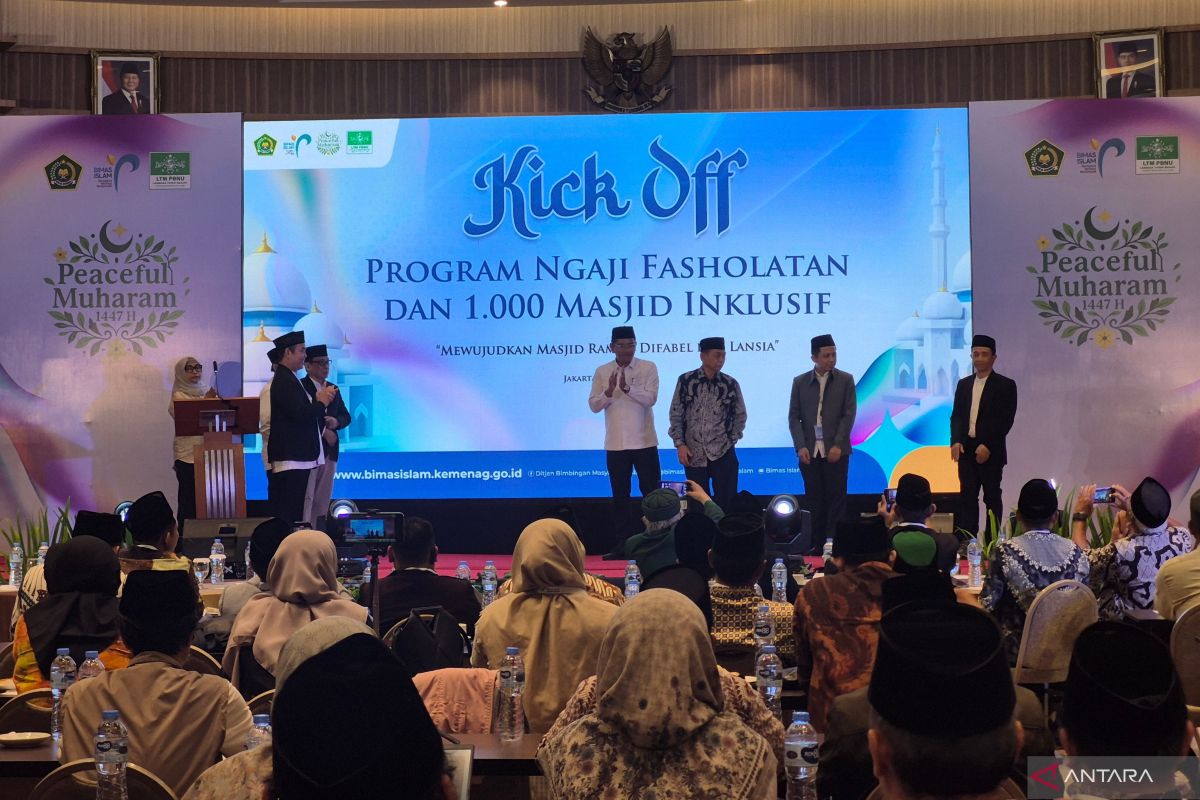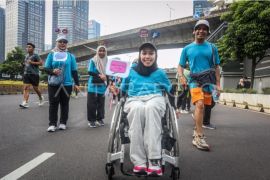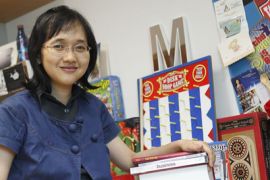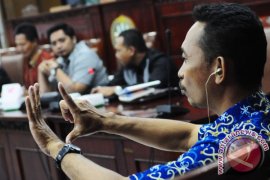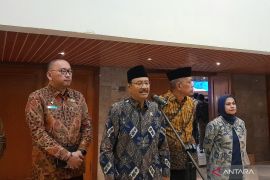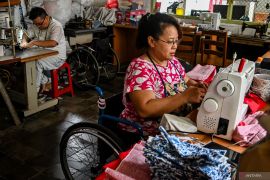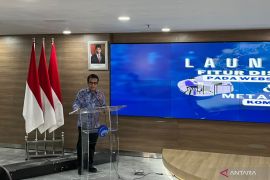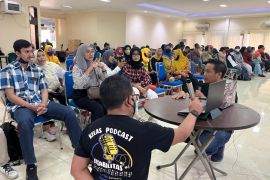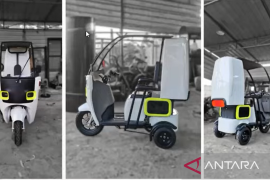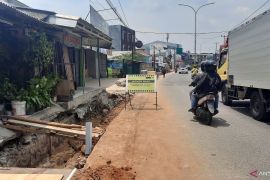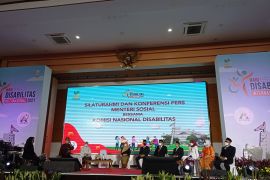The ministry's Director General of Muslim Community Development, Abu Rokhmad, stated at the program's launch event in Jakarta on Tuesday that mosques must evolve into centers of social services and empowerment that are safe for vulnerable groups.
He emphasized that the inclusive mosques program addresses not only physical accessibility but also the perspectives of mosque administrators and congregants.
In addition, he highlighted the importance of collective awareness that every citizen has the right to safe and respectful access to religious services.
Director of Islamic Religious Affairs and Sharia Development of the ministry, Arsad Hidayat, explained that most mosques are still far from ideal in guaranteeing access for vulnerable groups.
"A survey by the Center for Research and Community Service found that out of 47 mosques checked, 46 are not yet disability- and elderly-friendly," he pointed out.
He noted that the survey shows mosques are not yet treated as public spaces that uphold the principle of fair access. According to Statistics Indonesia (BPS) data, around 23 million Indonesians have disabilities.
The Ministry of Religious Affairs has issued the Decree of the Director General of Muslim Community Development Number 958 of 2021, which serves as the foundation for developing mosques accessible to people with disabilities and older adults.
The decree sets standards for physical facilities, such as ramps and special toilets, and requires training for mosque managers to ensure fair and respectful service for all worshippers.
He cited the Istiqlal Mosque in Central Jakarta and the el-Syifa Mosque in Ciganjur, South Jakarta, as positive examples that have installed ramps and special toilets.
Masyhuri Malik, chair of the Central Executive Board of Nahdlatul Ulama (PBNU), Indonesia's largest Islamic organization, expressed support for the inclusive mosques program.
He underlined that mosques not only function as places of worship but also as centers of community development, including for older adults.
Furthermore, Malik emphasized the importance of programs that encourage healthy and meaningful social interactions among older adults.
Related news: Rebrand mosques as inclusive gathering spots for all ages: Umar
Related news: Minister urges people to broaden function of mosques
Translator: Sean Filo, Raka Adji
Editor: Primayanti
Copyright © ANTARA 2025
